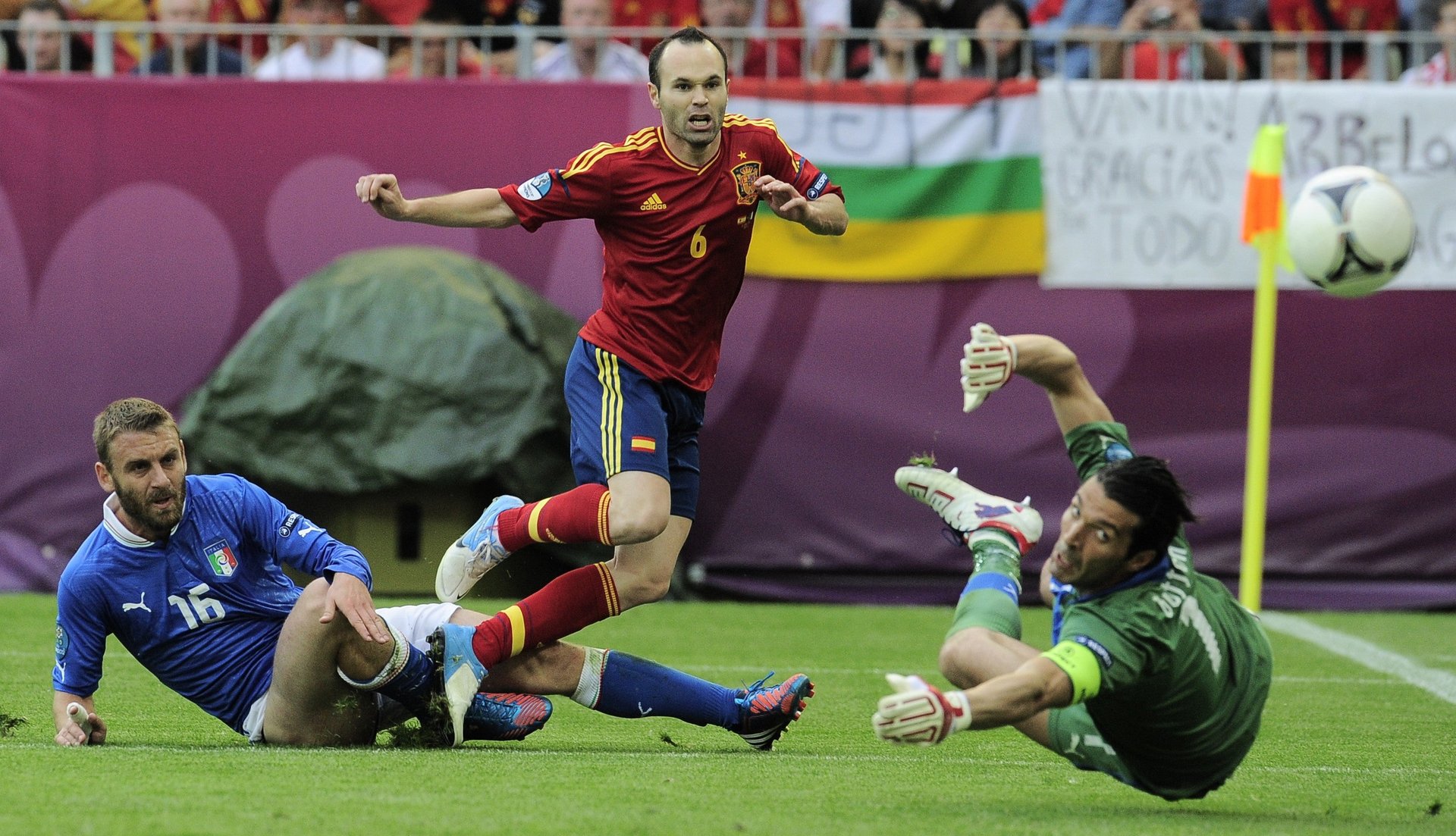In 2020, the Euro Cup will travel to 13 cities. Football fans will pay the price
Last week, Europe’s favorite sport announced a bold experiment: The Union of European Football Associations (UEFA) says the 2020 Euro Cup soccer finals will be held in 13 cities across the continent. Until now, tournaments were held only in single countries or pairs of smaller countries. UEFA president Michel Platini said the change will reduce the burden on a host country to shoulder the costs of stadiums and transport at a time of crisis in many European economies.


Last week, Europe’s favorite sport announced a bold experiment: The Union of European Football Associations (UEFA) says the 2020 Euro Cup soccer finals will be held in 13 cities across the continent. Until now, tournaments were held only in single countries or pairs of smaller countries. UEFA president Michel Platini said the change will reduce the burden on a host country to shoulder the costs of stadiums and transport at a time of crisis in many European economies.
But the idea is not only altruistic. The model is an attempt to turn around the sorry economics of hosting a tournament; many sites of the World Cup or Euro Cup have been operating at a loss, says former pro footballer Franz Königshofer, who wrote a book about Austrian host cities of the 2008 Euro Cup.
At the Euro 2020, the UEFA will be present in 13 cities. In the past, selected official sponsors were able to exclusively advertise and sell their products within a certain radius of the stadiums. UEFA also might be able to sell TV rights to more stations that will be interested to broadcast all games in their countries. In an email, UEFA said it hasn’t announced yet how TV rights will be regulated and how promotion and advertising rights will be organized. Local companies have been criticizing the exclusiveness of the advertising, since that way they hardly benefited from the tournament.
The cost structure, however, is a potential windfall for the UEFA and host countries, said Königshofer. The new rules thus allow several countries to share costs, which ran at least €11.7 billion ($15.7 billion) for the 2012 Euro Cup. In recent years, countries such as Ukraine, Poland, Portugal and Switzerland had problems finishing stadiums on time. Several of these stadiums have turned out to be bad investments because they now only hold events for much smaller audiences than the Euro Cup events they were built for. Königshofer said these costs would be reduced so cities that couldn’t host the games under the old rules are now able to apply. Meanwhile, UEFA General Secretary Gianni Infantino said in a press statement many cities “will be capitals … of different countries, so the transportation between these cities will certainly also be easier.”
Fans hardly think so; many are angry about higher travel expenses. Critics also fear the atmosphere of fans pulled from across Europe celebrating in one host country will be gone. UEFA has shown interest in these arguments, however, with questionable statements. “Perhaps in 2020, travelling will be different to how it is in 2013,” said Michel Platini.
Other media reports suggested that it is in Michel Platini’s personal interest to hold the tournament in several countries: Sports reporters think the move is a thank-you gesture to several smaller, eastern European countries for their votes toward Platini’s election as UEFA president in 2007. Already, many viewed the inclusion of Ukraine and Poland as hosts of the Euro 2012 the same way. Platini also had been accused of corruption in his vote for Qatar as the host for the 2022 football World Cup. What is known is that Platini voted for Qatar as the host country 2022, and that several weeks later company Qatar Sport Investments hired his son Laurent as its Europe chief. The company controls the business of football club Paris St. Germain and has sponsored clubs including FC Barcelona. UEFA declined to comment on these allegations.
The bidding process for 2020 begins in April; UEFA will appoint the host cities in September 2014.